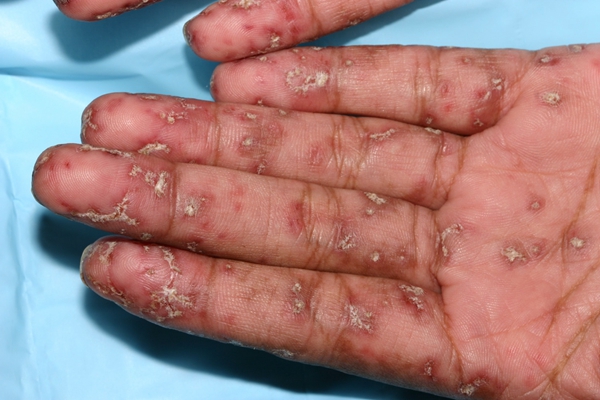Empowering Communities: The Frontline Battle Against HIV/AIDS Prevention in English
In the global health landscape, the fight against HIV/AIDS continues to be a pressing and complex challenge. As we stand at the cusp of significant medical advancements, preventing the transmission of this virus remains paramount. Crafting effective HIV/AIDS prevention strategies in English, the lingua franca of much of the world, is crucial to empowering communities and fostering a collective response. This article delves into the multifaceted approach to HIV/AIDS prevention, emphasizing the importance of education, community engagement, and access to healthcare services.

Education: The First Line of Defense
Education is the cornerstone of any prevention strategy. Providing accurate, comprehensive information about HIV/AIDS in English empowers individuals to make informed decisions about their sexual health and lifestyle choices. This includes understanding how HIV is transmitted (through unprotected sex, contaminated blood products, or from mother to child during pregnancy, birth, or breastfeeding), recognizing the symptoms, and knowing the availability of testing and treatment options.
Efforts must focus on destigmatizing discussions around HIV/AIDS. Using clear, non-judgmental language and promoting open dialogue can break down barriers and encourage those at risk to seek help. Online platforms, social media, and peer-led initiatives in English play a pivotal role in disseminating this information widely and reaching young people, who may be more reluctant to engage with traditional health channels.
Community Engagement: Building Resilience Together
Community engagement fosters a sense of ownership and responsibility in HIV/AIDS prevention efforts. By involving local communities in planning, implementing, and evaluating prevention programs, we can tailor interventions to meet specific needs and cultural contexts. This includes supporting community-based organizations that offer counseling, testing services, and support groups in English.
Moreover, involving key populations such as sex workers, men who have sex with men, and injection drug users is vital. These groups often face additional barriers to accessing healthcare and are disproportionately affected by HIV. Empowering them with the knowledge and resources to protect themselves and others can significantly reduce transmission rates.
Access to Healthcare: Bridging the Gap
Ensuring access to quality healthcare services is another vital component of HIV/AIDS prevention. This includes widespread availability of HIV testing, timely diagnosis, and effective treatment options like antiretroviral therapy (ART). ART not only improves the health outcomes of those living with HIV but also reduces the viral load, making it less likely to transmit the virus to others.

Overcoming barriers to healthcare access, such as stigma, discrimination, and financial constraints, is essential. Governments and non-profit organizations must collaborate to provide subsidies, insurance coverage, and mobile health clinics that can reach remote and marginalized communities. Additionally, integrating HIV services within broader health systems ensures that prevention, testing, and treatment are seamlessly linked.
Conclusion: A Shared Responsibility
Preventing HIV/AIDS is a shared responsibility that requires coordinated efforts from governments, non-governmental organizations, communities, and individuals. By leveraging the universal language of English to educate, engage, and provide access to healthcare, we can create a more resilient and equitable world. The journey ahead is challenging, but with continuous innovation, compassion, and commitment, we can turn the tide against HIV/AIDS and build healthier communities for all.
面对艾滋病的担忧,首要之举是保持冷静,避免自我恐慌,而是主动采取行动,通过检测来消除疑虑。幸运的是,如今检测手段已变得异常便捷,您甚至可以在家中自行完成检测。对于心怀恐惧或曾有过高风险行为的朋友,我们尤为推荐进行艾滋病核酸检测。这项检测仅需7天窗口期,能有效减轻您的心理负担。更重要的是,与一般的试纸自测不同,艾滋病核酸检测由专业的大型实验室严格操作,确保了检测的高准确性,有效避免了漏检和假阳性的可能,让您获得的结果更加值得信赖。若您有此需求,只需在艾测网轻松下单,即可迅速踏上安心脱恐之路。



